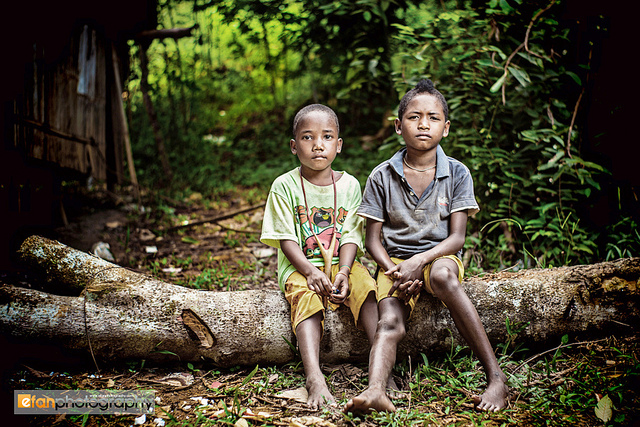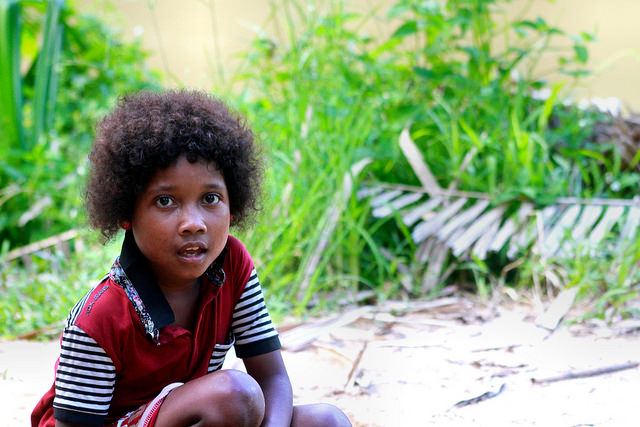A mysterious illness has struck a Batek community in Malaysia and the causes are uncertain. A report in Kosmo, a Malay-language news source, provided the puzzling clues in an article last week.

Mamat Potok, the traditional headman in Kuala Koh, told the reporter that the outbreak of the disease began last October when about 50 residents, particularly teenagers, started coming down with the illness. Younger people are quite anxious since there does not seem to be a cure. Since October, the illness has spread to nearly half of the 350 residents in the community.
The illness is characterized by scaly skin and severe itching that makes sleeping difficult. He said that the Batek are not blaming the young people—it is not their fault. The photos of the affected young people that accompany the article show their cracked, scaly skin. They look grim. They have consulted with the staff at the local health clinic without any success, he said.
Yati Ripin, a 29-year old woman, said her three-year old son has scaly skin covering his body, including his face. The people are not eating seafoods such as fish, believing that eating those foods could cause their skin to become infected. The scaly skin in about a week becomes purulent and starts to scab over.

Maizan Ripin, a 22-year old, told the reporter that the people infected with the disease were taking the trash provided by the health clinic. He added that the people believe it is impossible to treat the infections with either traditional remedies or modern medicines. So most of the infected people were giving up the medical treatments: the infections seem untreatable
A similar story in another Malay news source said that Mamat Potok, the village headman, was hoping the Kelantan state Health Department will be able to inspect the village before more people become infected with the mystery illness.
The day after those news stories appeared, the Kelantan Department of Health released its side of the story. The agency said that the mysterious illness is caused by a skin fungus. It said that the infection spreads easily from contact with contaminated pillows, mattresses and clothing. Anti-fungal medications will be given to the victims. The agency added, in its own defense (and in the wording of the Google translation), that the Batek “were persuaded to be hospitalized but refused to take the bus causing the disease to spread.” But the infected people are willing to be treated, the agency concluded “so that the disease can be addressed.”